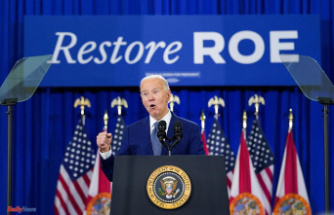Dresden (dpa / sn) - The Saxon Economics Minister Martin Dulig (SPD) has campaigned for a higher collective agreement in the Free State. During a debate in the state parliament, he named a high proportion of standard wages as a condition for the economy's competitiveness. "Does anyone really believe that we will deal with our labor and skilled worker problem with low wages?" The job market has changed completely. There is no longer an "employer market" but an "employee market". Workers would know their price exactly. According to the Ministry of Economic Affairs, only 42 percent of employees in Saxony worked in companies with a collective agreement in 2021.
Dulig also defended the increase in the minimum wage to 12 euros per hour, probably from autumn. This minimum wage has something to do with respect. In Saxony, most employees would have benefited from the introduction of the minimum wage. With almost 1.7 million jobs in Bavaria, 611,000 of them have gross earnings of less than 12 euros. The Minimum Wage Commission will continue to monitor the amount of the minimum wage in the future, said Dulig, referring to the high inflation and increased energy prices.
Left-wing politician Nico Brünler saw the government as having a duty to bind collective agreements. "The Free State must set a good example - all state-owned and municipal companies must be bound by collective agreements. Above all, however, a modern public procurement law must finally be in place. Public contracts can only be given to those companies that pay and treat their employees properly."












